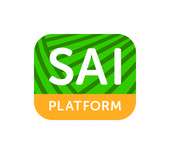Environmental and social procurement criteria
In the food industry, it is therefore also necessary to take sustainability criteria into account during procurement and to rely increasingly on partners who meet these criteria.
When procuring agricultural commodities and upstream products, we at AGRANA therefore insist that sustainability aspects are considered and documented.
AGRANA principles for the sourcing of agricultural raw materials and intermediate products
The AGRANA principles for the sourcing of agricultural raw materials and intermediate products set both minimum social standards (by reference to the AGRANA Code of Conduct) and environmental criteria that AGRANA regards as relevant for the sustainable production of the agricultural raw materials required by the Group.
The principles also address different ways for suppliers to meet these sustainability criteria, according to the degree of vertical integration of the respective sourcing model. They are part of individual contracts with contract growers and other raw material suppliers.
Sustainable Agriculture Initiative Platform
Cooperation with contract growers is of particular importance to AGRANA as it offers the unique opportunity to work together to improve environmental and social standards in the production of the raw materials we process. With this in mind, we have also been involved as a member of the Sustainable Agriculture Initiative Platform (SAI Platform) since 2014.
The SAI Platform gives processors of agricultural raw materials like AGRANA several helpful tools particularly for the evaluation and documentation of conformity with good environmental and social practices in the agricultural supply chain and for comparing the value of different documentation types and international certifications.
The underlying tool is always the Farm Sustainability Assessment (FSA) created by the SAI Platform. This assessment is carried out using a 109-point questionnaire covering all features relevant to sustainability, such as farm management, working conditions (including questions on child and forced labour), soil and nutrient management and crop protection. Depending on the fulfilment of the various criteria, each farm receives a sustainability rating designated by a status of “gold”, “silver”, “bronze”, or “not yet bronze”.
In addition to the direct application of the FSA, the SAI Platform provides a comprehensive benchmarking system that ensures that farms which already have relevant certifications (e.g., Global GAP, Rainforest Alliance, Bonsucro, etc.) or participate in company-specific sustainability programmes are accorded FSA equivalence, which significantly reduces the verification effort. The verified compliance with national legal requirements or the certification to international or company standards, as well as the external verification of farm self-assessments under the FSA in conformity with the rules of the SAI Implementation Framework, enable agricultural producers and the processing industry to advertise their FSA sustainability status in the B2B space.
The external verification of the FSA sustainability level of AGRANA’s contract farmers is governed by a three-year cycle that began in 2017. In the 2020|21 financial year, re-verification audits took place in all AGRANA segments. The next verification, under the new FSA 3.0 system, is scheduled for the 2023|24 financial year.
